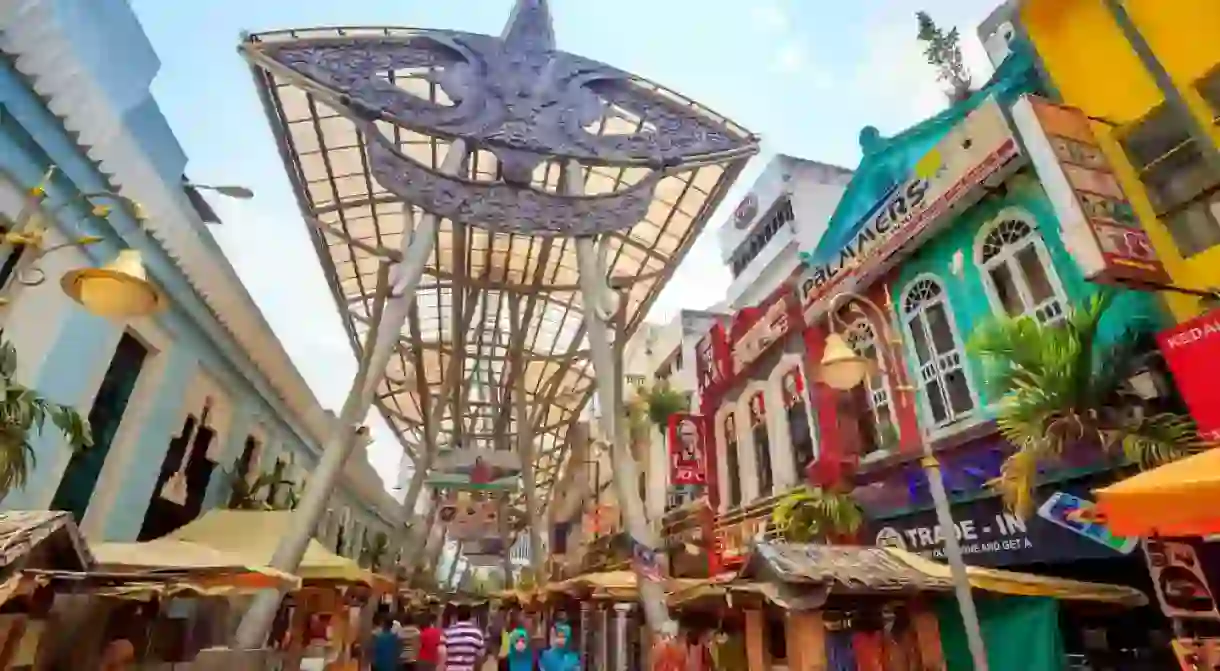How to Travel Malaysia on a Budget

Once you cross the Thai border into Malaysia, it’s all about the ringgit, not the baht. Which means that you need to be a little ingenious if you want to stretch your buck.
Go monsoon
If you don’t mind risking your life — okay, maybe just your hair — then traveling prior or after the monsoon months will be your best budget bet.
Between November and March, the Northeast monsoon hits the east coast of Peninsula Malaysia — which means that hotel and air flight prices will fall in the weeks leading up to, or directly following, these months. (Book it!)
Barring the east coast, all other states are good to visit throughout the year. To make the most of your ringgit, avoid major holidays like Hari Raya, Chinese New Year, Deepavali, and Christmas. This is when the locals flock like chickens to their kampung (village) of origin. You can see a list of public holidays in Malaysia here.

Train, bus or airplane?
Honestly, it doesn’t matter. If you’re traveling inter-state within Malaysia, you get to choose your preferred mode of transport even if you’re poor — because it all costs roughly the same. For a one-way trip from Kuala Lumpur to Penang, a bus ticket will cost you RM60 ($15), the ETS train by KTM will cost RM59 ($15), and an air ticket will cost you RM79 ($20). So unless you really need to save that last RM20 ($5) on a keychain from Langkawi, don’t worry about inter-state transport. Go with your heart (and feet).

Uber, Grab or MyRapid
You may not have to worry about inter-state transport expenses, but when it comes to traveling intra-state (within state), you might want to pay some attention. Taxis are notorious for being overpriced, and as much as we feel for the local uncle who has to make a living somehow, you have to keep your own wallet full, too.
Public transport, including the LRT in Kuala Lumpur and the buses in other states, are good value for money. The Rapid Bus system operates in Kuala Lumpur, Penang and Kuantan. 400,000 people ride this bus every day. Check out the MyRapid routes for Klang Valley and Penang. Another way to save on your ringgit is to take an Uber or Grab car. If you’ve never heard of Grab, it’s because you’re not from Southeast Asia — this app has been operating for longer than Uber in Malaysia, though both apps are equally competitive in their rates.

Hostels or AirBnB
Lucky you, because AirBnB is legal in Malaysia, unlike in certain other countries. This means that you get to stay in beautifully furnished apartments and home-stays for less than the price of a 2-star hotel. Check out the gorgeous homes here.
Hostels are another way to travel your way around Malaysia on a budget. Youth hostels, café hostels, heritage hostels, budget hostels (redundant name, but anyway) — are all part of the hostel repertoire in Malaysia. For under RM100, you’ll have a crash pad, and sometimes breakfast, too.

Do the free stuff
You don’t need to attend the Philharmonic Concert to discover the country. Tons of free attractions and activities are available, especially if you like temples, markets, and hiking. Most of the religious sites in Malaysia are under RM30 ($7.50), if not altogether free, and Penang’s street art is always available for you, regardless of the change in your pocket.

Ditch the drink
In Malaysia, you have to choose between your wallet and getting wasted. If you’re used to UK, US or Aussie prices for alcohol, then you’ll feel right at home. A pint of beer will cost you RM12 ($3) in Kota Kinabalu and Penang, slightly higher if you’re in Kuala Lumpur. Even in the supermarkets, a bottle of medium-grade sparkling wine will cost at least RM69.90 ($17.50). This goes for coffee as well. Lattes, cappuccinos, and caramel macchiatos are at least RM10 a pop, and if you want your ice-cool frappuccinos? Forget the ringgit. You might as well be paying in USD.
*The only exception to this if you go to a food court (see below) or a coffee shop (which, incidentally, is different from a café).

Gorge at food courts
When in Malaysia, do as the locals do — and go to a food court. In Kuala Lumpur, you can have a meal, plus dessert and a drink, for under RM15 ($3.75). It gets even better once you venture beyond the capital. In Ipoh or Penang, you can have a mini feast for the same amount. It’s no fine dining, but it sure is kind to your purse.














